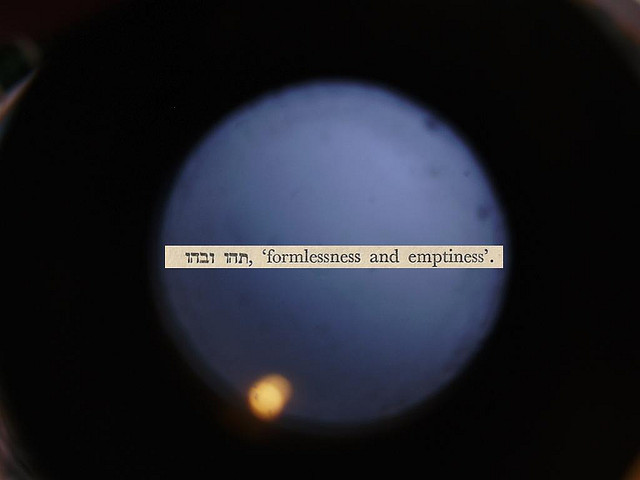We run our website the way we wished the whole internet worked: we provide high quality original content with no ads. We are funded solely by your direct support. Please consider supporting this project.

Pre-Modern Readings of Genesis 1
Biologos posted a three part reflection on Pre-Modern readings of Genesis 1 that are worth a closer look. And no matter what your particular way of reading this portion of Scripture, let’s pay attention to what edifies the Church and whether our reading contributes to that.
From Part I of the series:
Key theologians of the early church (such as Origen and Augustine, as we’ve discussed) read Scripture with multiple senses and meanings—with a literal sense and multiple spiritual senses. However, not all fully agreed with this methodology. Though most all would certainly hold to multiple senses of Scripture, some readers insisted upon a more profound attention to the literal sense, and the use of the literal sense to help restrain or hold in check the possible spiritual readings. Such 3rd- and 4th-century Church fathers, as St. Basil the Great, John Chrysostom, St. Ambrose, and Theodore of Mopsuestia insisted upon a much more restrained literal reading of Genesis 1.6
Yet even those who insist upon a more literal—or more historical—interpretation of Genesis 1 still contended that the primary purpose of any reading was to edify the Church, which entails setting forth the key theological teachings of Genesis 1, rather than focus on the material specifics. Again, such teachings include that the world is created, that God create the world out of nothing, and that the creation account demonstrates the great order and harmony of creation as a testimony of the God’s glory, beauty, and goodness.7
Related Reading

A Rational Defense of Belief in God
The New York Times recently posted a review of Alvin Plantinga’s book, Where the Conflict Really Lies: Science, Religion, and Naturalism. In it, Plantinga argues on philosophical grounds that, among other things, theism is not in conflict with science, that a belief in naturalism along with evolution is contradictory, and that “Faith…is another basic way of forming beliefs, distinct…

Podcast: If Jesus is the Word of God, Why Call the Bible the Word of God?
Stories and words and Bible nerds. http://traffic.libsyn.com/askgregboyd/Episode_0459.mp3

Must We Deny Biblical Infallibility to “Disarm” Scripture? A Review of Derek Flood’s Disarming Scripture: Part 1
Image by e³°°° via Flickr Since I’ve been working on my own book dealing with the violent portraits of God in the Old Testament for the last eight and a half years, I was keenly interested in Derek Flood’s new book, Disarming Scripture: Cherry-Picking Liberals, Violence-Loving Conservatives, and Why We All Need To Learn to Read…

Two Preschoolers Debate Ontology
ianus via Compfight I’m convinced every child is full of theological wisdom that the fallen world tries to suffocate by the time they’re ten. As an illustration of this truth, I thought you might enjoy a discussion that my daughter Alisha overheard in children’s church this last week between Sage (Alisha’s five-year-old daughter and my…

An Alternative to Biblical Inerrancy
As with all other theological issues, when it comes to affirming that Scripture is “God-breathed,” everything hangs on where one starts. A dominant strand of the Evangelical tradition started with the assumption that, if God is perfect, and if Scripture is “God-breathed,” then Scripture must also be perfect or “inerrant.” Other “progressive” evangelicals have responded by…

The Cosmic Dance Origin Story
In this video, Greg introduces The Cosmic Dance, by explaining what motivated him to write this quirky little book. If you live near the Twin Cities, come to the launch party Friday June 24th where you can purchase the book at a discounted rate. Click here for information on the launch party.
